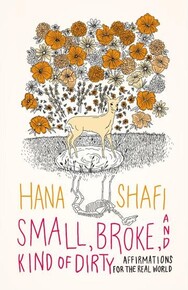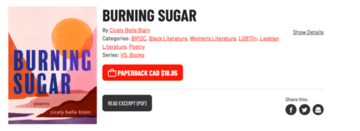We’ve been chatting with a number of publishers over the past month, checking in on how they are doing in this crazy year. Of course, they’ve all struggled in some way or another due to varying levels of lost sales, heavy returns, uncertain demand, and disrupted order fulfilments. But we also heard fascinating stories about how publishers adapted their operations to make the best of a bad situation.
A few of the themes that emerged were:
Amazon's even larger importance as a sales channel
Being able to sell through Amazon has helped publishers to obtain desperately needed revenue and cashflow in months where physical bookstores were closed. Some publishers reported that sales through Amazon have doubled or tripled as a percentage of overall sales. At the same time, they also noted the key role of local bookstores and are concerned about the daunting and even existential challenges faced by some of these booksellers this year.
New levels of innovation
One publisher told us they’ve had to become a much better businessperson, working closely with their accountant to figure out how to become leaner and smarter in operations management. Another told us how much more attention they are paying to metadata to make their books more discoverable. Others spoke of increasing their e-books production and strategies; of leaning more heavily on books with local flavour; of developing class licensing arrangements; of promoting backlist; of segmenting target audiences and building up email lists; and of producing books faster than they ever have to capture seasonal tastes, public moods, and pandemic realities such as kids having to learn from home in the spring. The conversations we had were truly inspiring – people working harder and under a great deal of stress, yes, but often with surprising and unexpected results that will serve them long past the pandemic.
Crucial role of the publisher website for sales
When bookstores closed, publishers with good e-commerce websites had a distinct advantage. Throughout the pandemic, consumers have been hyperaware of how important it is to support local retailers and indie businesses. As much as they may still be buying from Amazon, especially because of convenience, readers are also more willing than ever to buy from indie publishers and bookstores online – if additional fees such as shipping aren’t too steep.
There are hundreds of ways to think of segmenting book buyers, and this way (our own) is especially relevant now:
Three Kinds of Book Buyer
- The Easy Riders: This segment buys primarily from Amazon and sometimes other large retailers because of such benefits as fast delivery, free delivery, and the ease of online shopping.
- The Smorgasbording Savants: The Savants buy from Amazon and major retailers AND indie bookstores and publishers with e-commerce capabilities. The last behaviour is often a show of solidarity and deep love for indies but it can be irregular because of price sensitivity or other convenience factors.
- The Community Champions: This group buys mainly from indie bookstores and indie publishers.
As mighty and discerning as the Community Champions are, they are a relatively small percentage of the market. But here’s the thing: this segment is growing and becomes larger still when publishers have powerful, nimble websites they can adjust on the fly to encourage sales of specific books, an entire catalogue, or books from years gone by. Offering free shipping when a minimum order threshold has been reached, offering a surprise discount on the checkout page, launching one-day sales, creating book bundles, and promoting backlist titles that capture the zeitgeist are all potential strategies. There is a strong momentum in the marketplace towards supporting local businesses, and publishers and booksellers who can sell effectively online can ride that wave.
A larger segment of book buyers – the lovely Smorgasbording Savants – is really worth paying attention to. If you tempt this group properly – with books beautifully presented through killer data (reviews, awards, blurbs, excerpts) or with aforementioned shipping or bundles, etc. – you can sway more of them to buy from you on a more frequent basis. As we talked about last month, one of the only good things about the pandemic is how much people care about supporting their communities and local economies.
Questions to think about
Based on our running conversations with publishers, we’ve created a list of questions that might be interesting to think about in these crucial holiday season months:
How well are you using your banner? Prioritize incentives for purchases. ECW Press has a very cool promotion on now where they’re sending readers who’ve bought one of their print books or audiobooks a free e-book.
ECW's homepage banner offers a free perk to get shoppers in the mood.
Why not mine your backlist and surface the best and most relevant? In this year where time got slippery, many readers became less aware of and influenced by the season’s latest titles and more intent on buying really good books, whatever their original pub date.
Are you offering shipping discounts? It’s time.
Could you pitch your books more effectively? In uncertain times, many readers are looking for comfort and books they feel are almost guaranteed to please them. Compare your book to a bestseller, if you can (e.g., “For fans of Sally Rooney …”)! Leverage our collective need for hygge (e.g., cookbooks, health and wellness books, etc.) – we’re coveting Shana Hafi’s Small, Broke, and Kind of Dirty, published by Book*hug Press. In other words, position your books rather than just displaying them.
Could your staff be adorable or audacious? We’re all sitting around at home checking out ridiculous GIFs and videos. It may very well be that your fans will take a break from watching the cockatoo with the kittens to hear your brilliant staff talk about why they love one of your books so much – video could be a great idea here.
Are you providing samples or excerpts? All readers “look inside” on Amazon. Embrace this entrenched consumer need to read a first chapter (or download a recipe, or whatever makes sense for your program) and include excerpts.
Arsenal Pulp Press provides an excerpt from Burning Sugar, a poetry collection by Cicely Belle Blain.
If ever you have questions about how to make your website do more for your publishing program, please contact us! Until then, wishing you many sales and much stamina in the busy holiday season.



